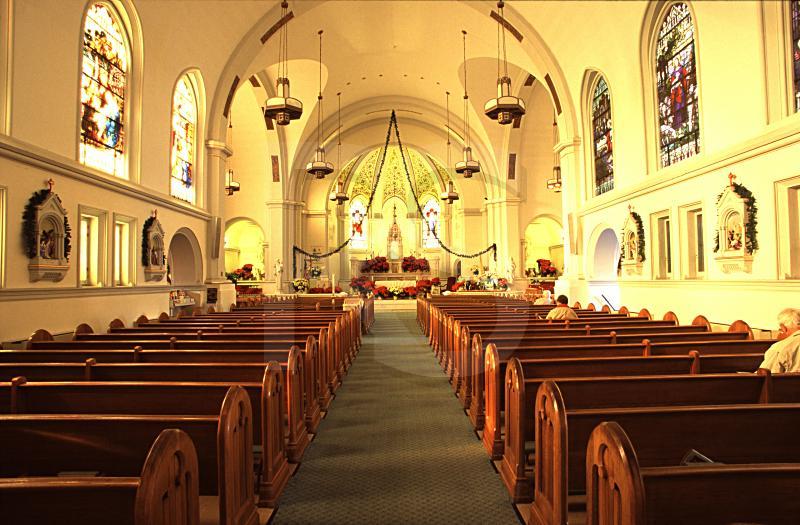PART1. SOUL IMMENSITY IN OUR PRESENT LIFE(cont)
1. SENSIBILITY
Order demands that we study first the depths of our emotional life as illumined by sense cognition and then those of our voluntary life as illumined by our intellect. Progress in acquired virtue and, still more, progress in infused virtue will reveal immense depths and will clarify in particular the growth of charity in the souls of the saints, both in their hours of trial and in the joy of their apostolic triumphs.
Sensibility, the source of passion and emotion, is, like sense knowledge and imagination, common to animals and men. This sensibility we call sense appetite to distinguish it from the will, which is a spiritual faculty, common to man, angel, and God. Passions, emotions, the movements of sense appetite arise when sense knowledge or imagination puts before us a sense object, attractive or repellent. Thus we note that the desire for food appears under a peaceful form in the dove and the lamb, but under a violent form in the wolf, the tiger, and the lion.
The first among all passions, the source of all others, is sense love, the love, for example, of the animal for the food it needs. From this love rises a series of passions: desire, joy, hope, audacity, hate, aversion, sadness, despair, fear, and anger.
Passion is not always, but may become, keen, vehement, dominating. In man the passions are meant to be ruled and disciplined by reason and will. Thus ruled, they are weapons which defend a great cause. On the contrary, if they remain unruly and undisciplined, they become vices: love becomes gluttony and lust, aversion becomes jealousy and envy, audacity becomes foolhardiness, fear becomes faintheartedness and cowardice.These wide contrasts, both in good and in evil, show how deep and immense is the world of passion. Even in the animal kingdom what heights are scaled by love and hate: in the lion, for example, attacking his prey, in the lioness defending her young!
But this width and depth of passion is still more immense in man, because man's intellect grasps universal good and man's will desires that boundless good which is found in God alone. Hence when man's will does not follow the straight road to God, when man seeks supreme happiness not in God but in creatures, then his concupiscence becomes insatiable, because he has unlimited desires for a good that is limited. Man's will was created to love supreme good and the irradiations of that supreme good. Hence when the will turns aside, its tendency to universal good continues under that deviation, and this tendency of man's highest faculty now becomes foolish, exercises a lamentable influence on man's lower faculties. This truth is a proof, a sad proof indeed, but still a proof, of the spirituality of the soul. The ruins of decay are a souvenir of grandeur.
Passion, says St. Thomas, [2] when it is truly natural, that is, founded on man's nature, cannot be boundless, because it desires only what nature demands, and the sense good which nature demands is limited, in food, for instance, and drink. Unnatural desire, on the contrary, can be unlimited, because it arises from reason gone astray, which sees unlimited good in a good which is in reality limited. Thus a man who desires wealth can desire it in limitless measure, can see in wealth the ultimate purpose of his life.
Natural desire, then, in animal and man is limited. The animal (e.g., wolf, tiger, lion) when it is sated no longer seeks prey. But intelligent man when depraved conceives and pursues ever more wealth and pleasure. Hence quarrels among neighbors and endless wars among nations. The miser is insatiable, likewise the man of pleasure and the man of power. Love when thwarted begets hate, and that hate becomes boundless. Hate, says Baudelaire, is the cask of the pale Danaides. These Danaides, says mythology, slew their husbands on their wedding night, hence were condemned to fill a cask without bottom: endless punishment of boundless depravity.
If passions which man shares with beast be so deep and wide, what must be the depth and breadth of the will which is a spiritual faculty common to man and angels? [3]
2. Ia Iae. q. 30. a.4.
3. This depth of human sensibility is less noticeable in the order of good, because in this order it disposes us to love a spiritual good which is not accessible except to the spiritual will. We have illustration of this in the love of family and of fatherland, if this love is fastened on the common good which is above all a matter of justice and equity.
On the contrary, the sensibility of a depraved person looks for the infinite in sense goods. He asks of them what they cannot give. As a result he falls into disillusion and disgust, since nothing can longer please him.
Next Section >>





